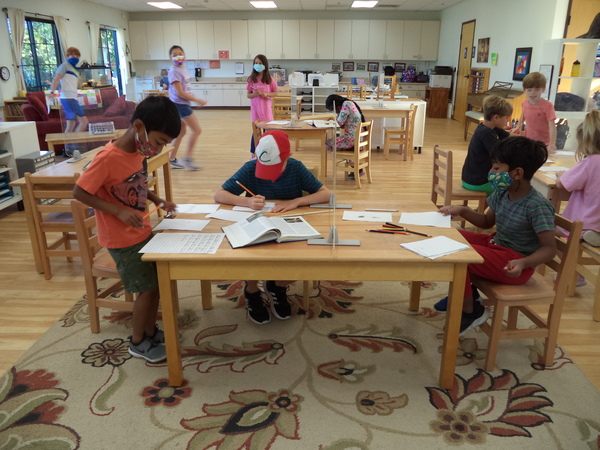(858) 759-0631
At times, the world can beat a path to our children’s doors leading them into an anxiety-filled adult world. This steady news stream—war, crime, injustice and tragedy—is seen and heard 24/7 from TV and radio to Internet headlines and news on devices. Bad news creates stress! As a result, coping with anxiety has become a challenge for children that parents must soothe.
Fortunately, Montessori philosophy and methodology build childhood coping skills.
Today, 3,000 American Montessori preschool and elementary schools practice ‘how.’ And these Montessori coping skills are embedded within the core of how it is taught.
By building social and emotional tools in conjunction with academics, Dr. Maria Montessori’s focus--observing, respecting and granting permission to children as ‘start points’ towards understanding and managing themselves—creates what we call The Montessori Edge.
How Montessori Methodology Influences More Than Just Academics
Montessori teachers guide students ‘how to think’ by letting them work through tasks individually. They learn at their own pace and follow their own topics of passion. The takeaway: each individual student is given the time to research, learn and master concepts rather than just memorizing facts. It is this freedom that builds a well-rounded social and emotional underpinning.
Montessori kids learn early: ‘even though I can’t control the world and its uncertainty, I can and will learn how to control my own corner of it.’ That attitude is the result of giving kids ‘choice.’
Compared to one-size-fits-all type schools, the approach to academic learning may not provide the social and emotional skills needed to obtain the confidence needed to be able to cope with stress. Instead, students may only be taught the same lesson at the same time regardless of whether they ‘get it’ or not.
The Value of Choice
From the get-go, choice is a core focus of Montessori learning. Students are permitted to go at their own pace and follow their own passions. Since they are given choices, respect and freedom by their teachers, they develop self-esteem and independence. Why? They are not immersed in a one-size-fits-all group rote academic traditional school structure.
Over time, these social and emotional skills manifest themselves. Montessori students are not cowed by the anxiety of helplessness. Rather, since they learn early to know themselves, what they’re about and what makes them tick, they become independent and self-assured. These self-care and self-development skills heighten each child’s internal motivation. Combined, these skills build leadership traits.
Summary
Montessori students are the owners of their education rather than tenants of an educational system. Although we live in an uncertain world, a Montessori education provides even the youngest preschoolers ways to foster childhood coping skills. In this way, coping with anxiety becomes more manageable as our children erase fear by using the Montessori Edge—social and emotional skill sets they’ve learned using the Montessori Method.

